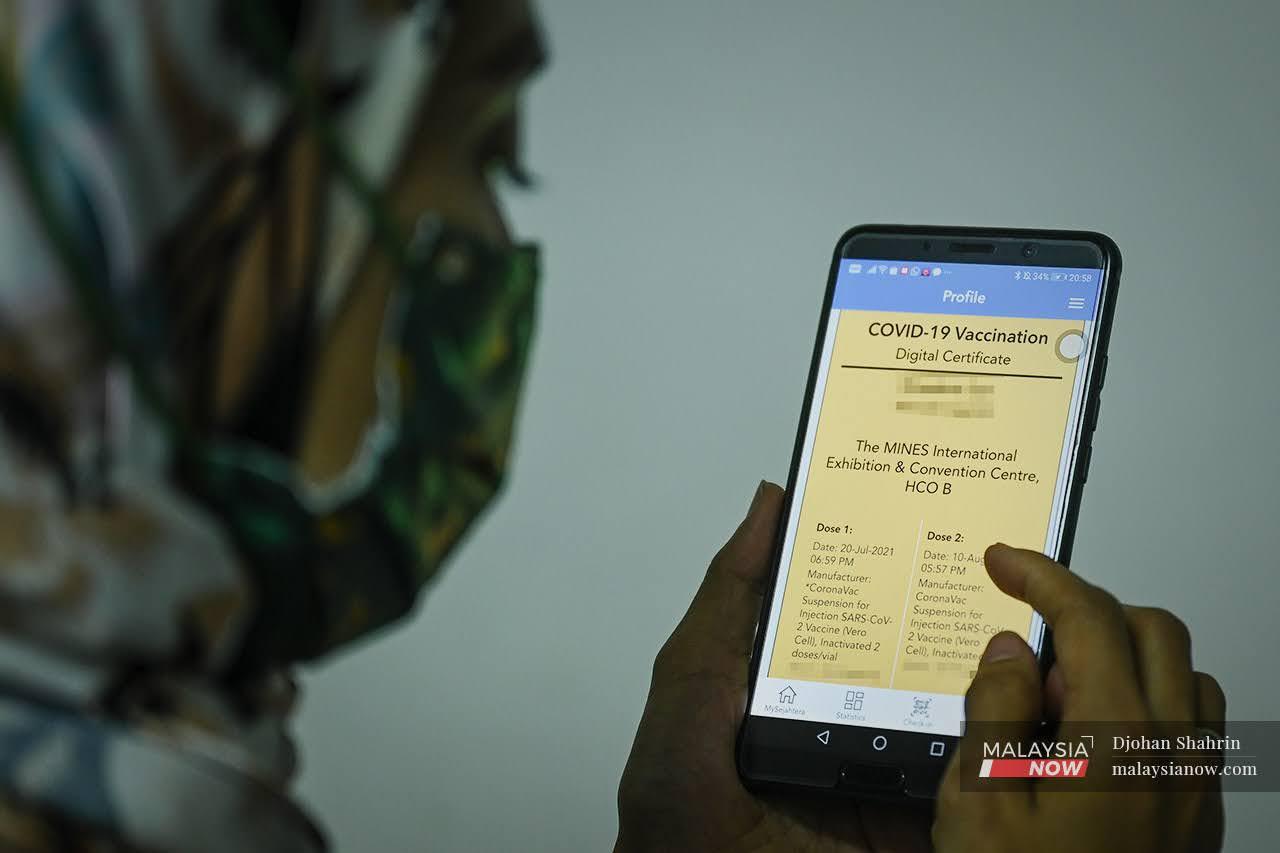Gombak clinic owner, 6 others nabbed over fake vaccination certs
Police say the vaccine supply provided by the health ministry was thrown away and the empty bottles returned to justify the issuance of vaccination certificates.
Just In
Police have arrested six workers and the owner of a polyclinic in Gombak which allegedly issued fake Covid-19 vaccination certificates for a fee.
Selangor police chief Arjunaidi Mohamed said clients were initially charged up to RM3,000 each for the service but that the fee was subsequently reduced to RM500.
The scam had been going on for two to three months, he told a press conference in Shah Alam today.
He said the suspects, who include three women, were aged between 20 and 35.
Arjunaidi said police also seized computer equipment believed to have been used to update the MySejahtera status of clients to show that they had been vaccinated.
Although the polyclinic received a supply of Covid-19 vaccine from the health ministry, the vaccine was thrown away and the empty bottles returned to the ministry to justify the issuance of vaccination certificates, he added.
Arjunaidi said the polyclinic catered to individuals wanted to obtain vaccination certificates without being injected.
He said police raided the polyclinic after WhatsApp messages on its illegal service went viral.
He did not rule out the possibility that the charges for the fake certificates had dropped because there were other groups offering similar services.
“Based on information gathered from a seized laptop, 5,601 patients were registered as vaccine recipients in the MySejahtera system, and we are conducting further investigations to determine the number of people who were registered without getting the jab,” he said.
He said investigations are being conducted under Section 269 of the Penal Code and Section 22 (d) of the Prevention and Control of Infectious Diseases Act 1988.
Subscribe to our newsletter
To be updated with all the latest news and analyses daily.
